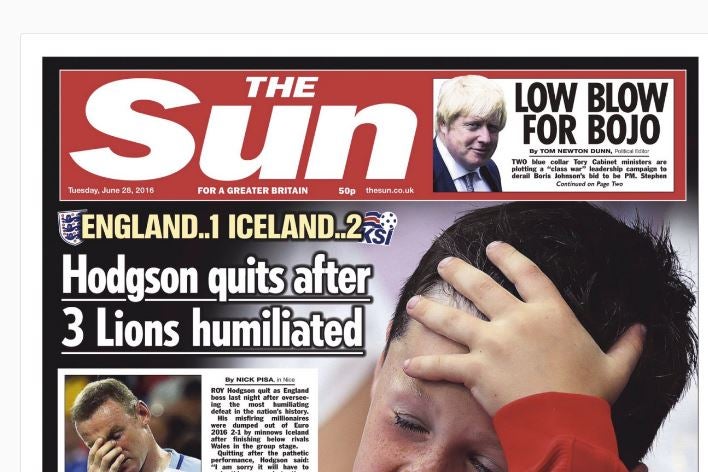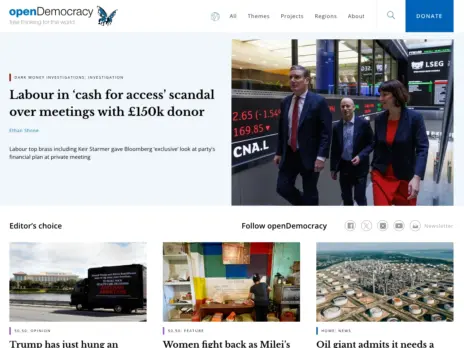
The Sun illustrated its front page report on the England football team’s humiliating defeat at the hands of Iceland with a photograph of Wayne Rooney’s six-year-old son, Kai, in tears. Several other pictures of Kai at the match appeared in Sun Online.
The front page headline – a rather laboured reference to a supermarket advertising slogan – was “Dumbs gone to Iceland”. Similar pictures of Kai Rooney were published in a number of other national newspapers.
In a tweet, Kai’s mother Coleen Rooney, described the front page as “absolutely shocking”.
Some time after the publication of this tweet the pictures of Kai were mysteriously removed from Sun Online.
Media commentators have, predictably, been unsympathetic to Mrs Rooney. For example, Roy Greenslade suggests that
“… it is unlikely that Rooney will have cause to make a complaint to the Independent Press Standards Organisation (Ipso) because the Sun, and all the other titles that used pictures of Kai, do not appear to have breached the editors’ code of practice.
The boy was attending a public event. He and his brothers Kaly, aged three, and five-month-old Kit, have often been pictured with their parents. Seven days ago, Rooney posted a photograph of the boys with their father on Twitter”.
This is correct. None of the provisions of clause 6 of the Editors’ Code are breached by the publication of a photograph which does not concern the child’s welfare and is not taken at school. But this is not the end of the matter.
The Courts have considered the privacy rights of children in public places in a number of cases. The most recent of these was Weller v Associated Newspapers ([2014] EWCA Civ 1176). This concerned the taking of photographs of children in the street – not at a public event. It may be that a child in a football crowd has a reduced expectation of privacy. Bearing in mind the factors mentioned by Roy Greenslade – the nature of the event and the previously released pictures – a privacy claim would face obvious difficulties.
The position in relation to data protection is, however, very different. In the Weller case it was common ground that the misuse of private information and data protection claims stood or fell together (see [2014] EWHC 1163 (QB) [16]). But this is not, in fact, the case.
The argument in favour of a data protection claim goes like this:
(1) A photograph is “personal data” – it shows where a person was at a particular moment, what they looked like and (in the case of Kai’s photograph) what the subject was feeling at that time.
(2) The taking of a photograph with a digital camera, its storing, transmission or publication constitutes “processing” of that personal data within the meaning ofsection 1(1) of the Data Protection Act 1998 (“the DPA”).
(3) The photographer, photo agency and newspaper are all data controllers in respect of that data and, as a result, must comply with the requirements of the DPA. They must, for example, be registered on the Register of Data Controllers – a failure to register constitutes a criminal offence under section 17 of the DPA.
(4) Although there is an exemption from most of the DPA when personal data is processed for with a view to publication of journalistic material, by section 32(1)this only applies where
“(b) the data controller reasonably believes that, having regard in particular to the special importance of the public interest in freedom of expression, publication would be in the public interest, and
(c) the data controller reasonably believes that, in all the circumstances, compliance with that provision is incompatible with the special purposes”.
(5) A data controller which processes a photograph showing a crying child cannot reasonably believe that publication of this photograph would be in the public interest. As a result, section 32 does not apply.
(6) In order for the processing to be lawful, one of the conditions in Schedule 2 to the DPA must apply – these include, for example, consent or the processing being necessary for various purposes such as the performance of contracts or the administration of justice. None apply in this case. The fact that the photograph is taken at a public event or that the parents have previously consented to the publication of photographs of the child is wholly irrelevant.
(7) It follows that the processing by the photographer, the agency and the newspapers is unlawful under the DPA.
Finally, it is should be noted that although all newspapers and some agencies are on the Data Protection Register many photographers and some agencies (including some of those taking photographs of Kai on 27 June 2016) are not. Processing by an unregistered data controller is illegal in any event.
As a result, if Mr and Mrs Rooney wished to take action over the Sun’s front page, they would have a strong claim under the DPA. If the photograph has had an impact on Kai himself he would be entitled to damages for distress under section 13.
Hugh Tomlinson QC is a member of Matrix and an editor of Informm
Email pged@pressgazette.co.uk to point out mistakes, provide story tips or send in a letter for publication on our "Letters Page" blog






